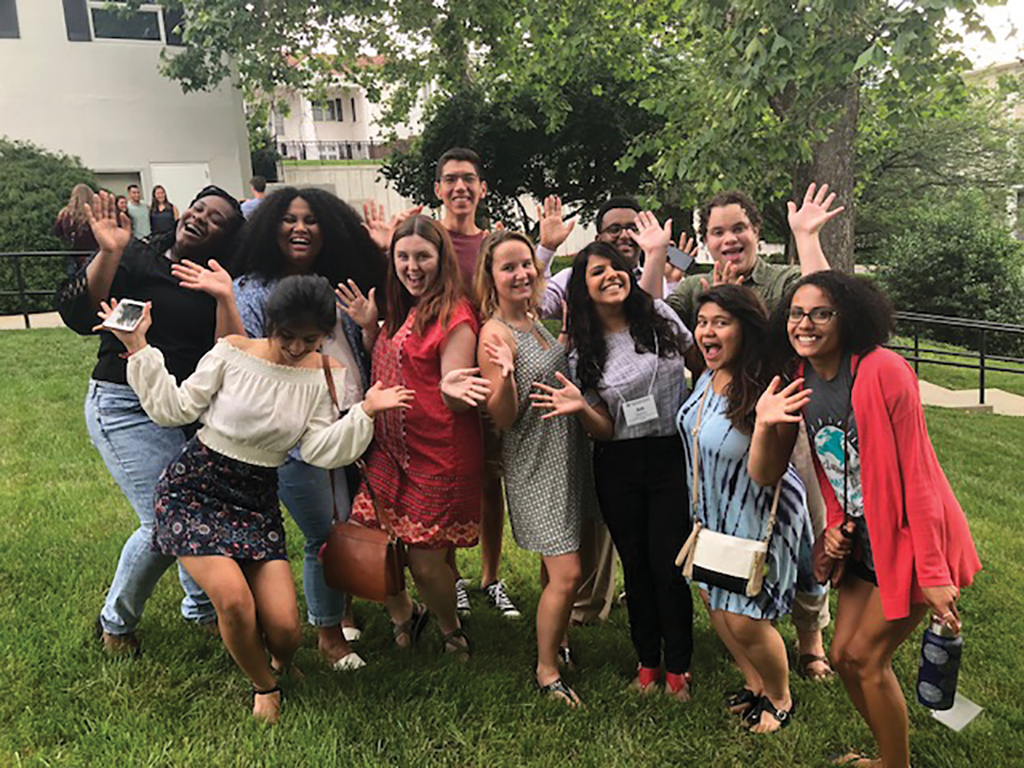Berea’s Office of Internships and Career Development gives students the tools they need for success after college
The class of 2018 is graduating into an economy on the upswing. In May, the unemployment rate dropped below 4 percent for the first time since 2000. However, according to the Economic Policy Institute, underemployment rates hover around 11 percent, meaning competition still is high for jobs that require college degrees and allow graduates to work in fields for which they spent four to six years studying.
Thanks to the efforts of Berea’s Office of Internships and Career Development, Berea students have the ability to enter the job search with confidence. They not only are armed with a high-quality education and built-in work experience, but also, with the help of the staff of that office, they have had the opportunity to explore career discernment, to develop a post-Berea action plan and to take part in career-specific internships.
Career Development
Career development is the student’s first step toward identifying their career aspirations and developing a plan to get there. The Career Development program at Berea College offers career counseling appointments to support students in career decision making; to explore career options in different majors; and to plan proactively for internships, gap experiences, full-time employment and/or graduate school.
“It’s really about discernment and meaningful themes,” said Amanda Tudor, Berea’s Career Development director. “Being career ready just denotes having a résumé, interview skills, etc. You can have a beautiful résumé, but if you don’t know why, what, where and how, then it will go down in flames.”
Tudor has been with Berea for three years, counseling students on how to identify their career goals by understanding how their skills, personality, major, interests, values and passions weave together to create meaningful themes, pointing them toward career opportunities that align with the core of who they are.
“We start with what they feel called to do,” Tudor explained. “We talk about why they chose their major, why they are doing internships and research, volunteering and involving themselves in various things. How does all of that come together?”
With some creative mind mapping and introspectively looking at the way their interests, talents and passions intersect, students can begin making decisions about potential careers. From there, they move into goal setting, creating tailored résumés and cover letters, targeting “best-fit” employers, exploring occupational trends and networking with Berea alumni in those career areas.
“It’s important for our students to learn how to tell an employer how Berea has transformed them,” Tudor said. “Berea is one in a million, and that transformation looks different for our graduates than for anyone else, anywhere else. We want students to connect the emotion of their story in a tailored way so they can share it with an employer to show how they are unique candidates.”
Mind Maps
A mind map is a graphical way to represent ideas and concepts. It is a visual thinking tool that helps structure information, helping better analyze, comprehend, synthesize, recall and generate new ideas. In a mind map, as opposed to traditional note taking or a linear text, information is structured in a way that resembles much more closely how your brain actually works. Since it is an activity that is both analytical and artistic, it engages your brain in a much richer way.
Much of this work is done in one-on-one sessions. In an average school year, Tudor or Career Development Coordinator Trisha Turner
conduct 450 to 500 individual appointments with students. In addition, Tudor and Turner also teach courses on enhancing career development and preparing for graduate school, in which they see between 40 and 50 students, per course, each year. On top of all of that, Career Development partners with Internships to host “Lunch with the Recruiter” events and targeted, small-scale employer networking events where both students and employers can get to know each other and discover what each has to offer the other. These events replace large-scale career fairs that often are not well attended or not successful for students or employers, Tudor explained.
Resources for alumni
Handshake is a career management platform used by more than 600 colleges and universities and by thousands of employers nationwide for recruiting. Alumni can utilize Handshake to recruit and post internship or full-time positions for Berea students on behalf of their current employers, search and apply for opportunities themselves, explore companies, manage their networking connections, and access valuable tools and resources provided by the Office of Internships & Career Development. Sign up for a Handshake Alumni and/or Employer account or email Sara Cornett.
Career development also is responsible for numerous career events each year including hosting a law school panel, a graduate and professional school event, Cornell Weekend where students network and learn professional job-search strategies from Cornell University MBA students, a Dress for Success fashion show (for more information on the fashion show and clothing grant) and seven weekend GRE prep sessions.
“It took me two years to get my head around having funding to pay for students’ GRE tests,” Tudor said. “No other career center does anything close to that.”
But Tudor and Turner’s enthusiasm goes beyond just providing funds. Turner’s GRE prep sessions are key to the success of Berea’s students on these graduate exams. The College covers the cost of study materials, ranging from $150 to $300 and the cost of the GRE, which is $205.
“What we found was just paying the bill wasn’t helping students get the scores they were hoping for,” Tudor explained. “What we realized is that we needed to help students break through barriers, and not just financial barriers. In the busyness of Berea, how can we help them with learning how to take standardized tests and provide the time and space to study for these exams?”
In addition to all of these on-campus activities and support, Career Development also gets students off campus to visit graduate schools, attend conferences and even shop for professional attire for interviews. All of these activities have helped numerous Berea students succeed in transitioning to graduate or professional school or into successful careers immediately after graduating.
Internships
In summer 2018, 247 Berea students representing 32 majors participated in internships in 33 states and five countries. Whether serving in non-profit organizations or big corporations, in the Appalachian region or at Pearl Harbor, Hawaii, these students gained invaluable experience preparing them for the professional world.
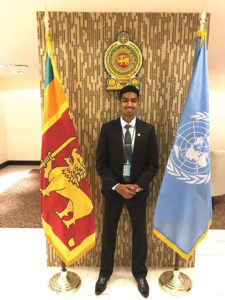
“There are students who don’t do as well in the classroom setting who thrive in an experiential, hands on setting,” said Esther Livingston, Berea’s director of Internships. “It’s a really important way to learn.”
Livingston and Internship Coordinator Sara Cornett, support students in identifying and applying for internships that support students’ ultimate career plans. That support starts with a three-session program. The first session, “Finding and Creating Your Ideal Internship,” assists students in identifying possible internships. It puts students on the beginning track to knowing what types of internships are out there that may fit within their career aspirations and how to find them. Of the three sessions, this one is not mandatory for all students seeking internships. Some students have already identified a particular area or internship opportunity and just need assistance with the process.
Sessions two and three are mandatory for all students seeking their first internship. Titled “Applying for Internships” and “How to Receive Credit and Funding for Your Internship,” these two sessions move students from the idea phase of landing the perfect internship to realistically achieving their goals.
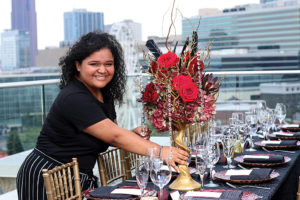
“When we talk about applying for internships, so many haven’t done a professional application yet,” Livingston said. “So these sessions touch on resumes, interviews, applications and how to present oneself in a professional setting.”
Students must participate in these three sessions before they can schedule a one-on-one appointment with the Internship office, where students can delve more deeply into where they need to go and what they want to do after graduation. These brainstorming discussions with Livingston or Cornett help students narrow down potential internship sites that may be a good fit.
“Sometimes a student finds the ideal internship by discovering a posting, and sometimes it’s through a cold call to a company that intrigues the student to figure out if they have internships available, or would consider offering one for a student interested in a particular field,” Cornett said.
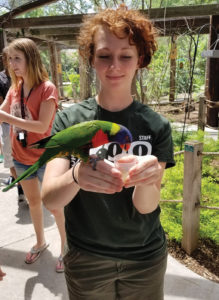
Since Berea funds up to two internships for students before graduation, students don’t have to worry about whether or not their dream internship is paid for by the sponsoring company or organization. That frees them up to pursue those internships that most excite them, while also enabling them to earn the income they need from summer work. One example is student Logan Paisley, an Applied Science and Mathematics major who wanted to do an internship in civil engineering and needed to stay in Kentucky. Livingston found a company in Lexington. She and Logan explored its website together, and he was excited by the projects the company was undertaking. Though there was no mention of internship possibilities on the website, Livingston called the company and spoke directly to one of its senior engineers, explaining Paisley’s interest. The engineer was open to the idea and asked Paisley to submit his résumé. He was able to land and complete a fantastic internship with the company, Livingston said.
“I can see it in their eyes when we find just the right place or position,” Livingston said about working with students. “We can look at various organizations and internships, and then all of a sudden their eyes light up, and
it is clear that’s the one.”
In addition to the three sessions and individual appointments, Livingston and Cornett also host a variety of events to connect students to internship opportunities and prepare them for those experiences. Each fall they conduct Internship Week, where they bring two to three employers to campus each day for panel presentations and networking. The employers meet with students and talk about their organizations and what they have to offer. Students know ahead of time which industries will be represented at each luncheon and can choose the day that best fits with their major and career interests.
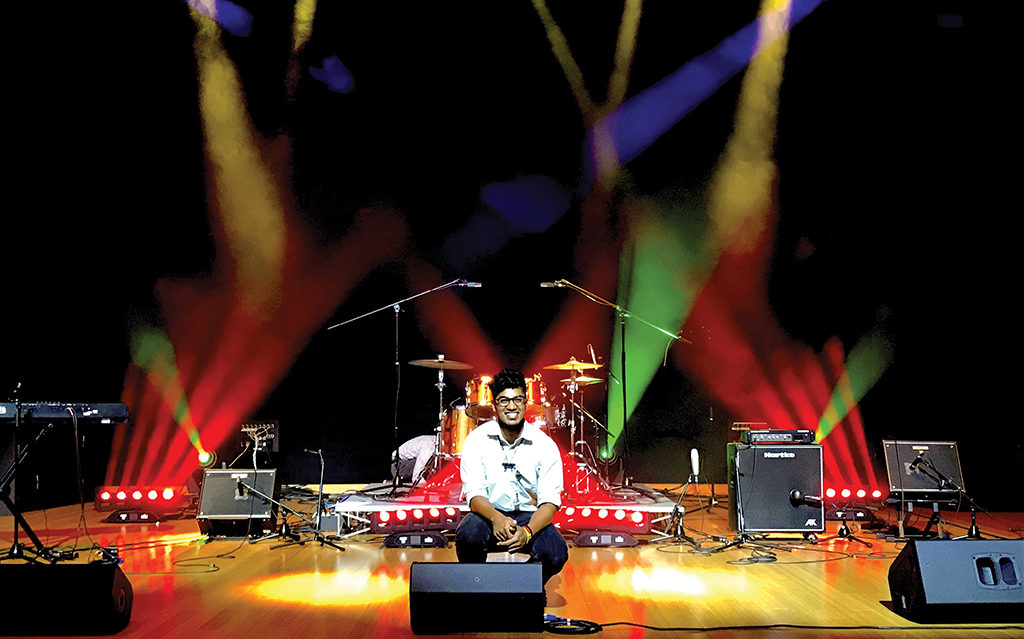
water’s performance theater doing live sound.
The Internship office also serves as the central hub to support the College’s corporate relations efforts in regard to internships and permanent professional positions. Employers with positions that are a good fit for several different majors don’t want to contact faculty in all those areas individually. Instead, they can contact Berea’s Internship office, which uses a centralized, searchable database called Handshake to post the information and share it with faculty, staff and students. Providing a central place for many students to connect with a wide range of employers benefits everyone. Handshake also allows students to schedule their own appointments and is used for event registrations, scheduling and tracking appointments.
Did you know:
Each year a small group of Berea students spend a summer working at a diverse non-profit in rural Yamanashi Prefecture, Japan, located just a few hours west of Tokyo? The internships are offered as a partnership between Berea College and the Kiyosato Educational Experiment Project (KEEP), a non-profit economic and community development project that is rooted in the Christian principle of service to others. Learn more about how you can support study/service abroad opportunities in Japan.
Each student who participates in and receives funding for an internship is held to a rigorous academic standard in order to receive credit for the internship. Students keep reflective journals and submit them on a weekly basis to their faculty sponsor throughout the internship, write a paper on a topic related to their internship and give presentations at department-organized events once the internship is complete. Each student also completes an evaluation, identifying valuable components of the internship experience and how it will affect future career plans or their current academic studies. After the internships, students’ supervisors also submit evaluations to the Internship office rating students’ skills and specifying contributions interns made to their organization.
Often, employers are impressed with Berea students. They give excellent feedback on their performance and indicate interest in hiring more Berea students in the future. For example, a doctor from Johns Hopkins University had a Berea intern over the summer and was so impressed with her that he flew down from Baltimore to participate in Internship Week in an effort to recruit more Berea students and establish an ongoing partnership.
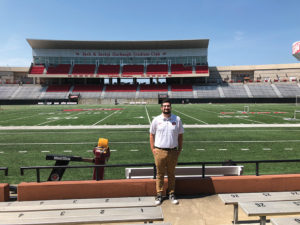
“By the time he was done here, he wanted to know what he could do for Berea,” Livingston said. “It’s a win-win for his program and for the students that get to put Johns Hopkins on their résumés.”
One senior sales manager with Eli Lilly and Company gave Berea high praise after discovering the unique qualities of Berea’s students.
“Berea students are impressive,” said Jeff Nowlin, Eli Lilly and Company senior district sales manager, after attending an event sponsored by Internships and Career Development. “When I go to a career fair at a big university, I may talk with 50 to 75 students and find one or two that I will interview. At today’s event, I talked with seven students and could have hired any one of them. When Fortune 500 companies find out what you have here, they will be beating down your door.”
Aligning Berea’s students with internships and career options that fit their distinctive passions and talents, and connecting them with opportunities to explore graduate schools, careers, industries and companies for which they are best suited helps create a solid bridge for Berea graduates leaving campus and entering the workforce or furthering their education.
“We are working to communicate to students how to be intentional about their four years at Berea and what’s expected and available to them each year,” Livingston said. “We identify benchmarks and markers and talk about how to make the most use out of their time here, so when they are crossing that stage at graduation, they have a plan, and they are equipped to take their next strategic steps.”
Giving Makes it Possible
The average cost to fund one student internship is approximately $4,000. Each year Berea College helps fund approximately 175 to 200 internship opportunities. That expense coupled with the other unique experiences the Office of Internships and Career Development provides quickly add up. Much of the funding support comes from generous donors and friends who believe in the value of developing students and providing career experiences that best prepare Berea graduates to step into the world and make a significant impact.


